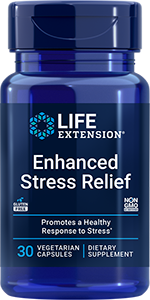 | April 16, 2010 | Dietary supplement use associated with lower risk of cervical dysplasia in HPV-positive women | | An article published in the April, 2010 issue of the International Journal of Gynecologic Cancer reports the finding of researchers at Korea University College of Medicine and Korea's National Cancer Center of a lower risk of cervical intraepithelial neoplasia (CIN, also known as cervical dysplasia) among human papilloma virus (HPV) positive women who consumed vitamin supplements. Human papilloma virus has been identified as the agent responsible for cervical cancer, for which cervical intraepithelial neoplasia is a precursor. The condition is detected by a pap smear and graded according to stage as CIN 1, 2 or 3. Although CIN can regress on its own, it is frequently treated with cryocautery, electrocautery or other methods. The current study included 328 HPV-positive participants in a Korean cohort study begun in 2006. Ninety women with CIN1 and 72 with CIN 2/3 were compared with 166 control subjects. Dietary intake prior to enrollment was documented in questionnaire responses, and supplement use was classified into 5 categories. Human papilloma viral load was ascertained by cervical sampling for HPV DNA. Having a high HPV viral load was associated with a three times greater risk of CIN 2/3 compared with the risk associated with a low viral load. Women who used multivitamin supplements had a 79 percent lower risk of CIN 2/3 than those who did not use them. Similar reductions in CIN 2/3 risk were observed for vitamin A, vitamin C, vitamin E, and calcium supplement use. For participants with a low viral load, the risk of CIN 1 was reduced by 65 percent and that of CIN 2/3 by 89 percent in multivitamin supplement users compared to nonusers. "HPV infection alone does not lead to cervical neoplasia; other factors, such as the patient’s nutritional status, play a role in cervical carcinogenesis," the authors write. "Dietary guidelines for the prevention of cervical cancer recognize the importance of antioxidants and have recommended an increase in the consumption of fruits and vegetables as good sources of dietary antioxidants." "This is the first study to report on an association between cervical dysplasia in women with high-risk HPV, the HPV DNA load, and dietary supplements," they announce. "Larger studies are needed for confirmation of these findings before the results can be generalized to a broader population." | |  |
| The Pap (short for Papanicolaou) test detects cervical cancer but is not a good test for detecting uterine cancer. A Pap test will fail to diagnose uterine cancer about 87 percent of the time (Nassar A et al 2003). Occasionally, uterine cells shed and appear on a Pap test. When this occurs in a postmenopausal woman, further evaluation is required. About 25 percent of postmenopausal women with abnormal uterine cells on their Pap tests will have uterine cancer (Berek JS et al 2000). However, about 6 percent of postmenopausal women whose Pap test results show normal uterine cells actually have uterine cancer (Ng AB et al 1974). Women who have uterine cancer should consult their physician before taking any nutritional supplements, especially if they are receiving conventional medical treatment. The Life Extension Foundation suggests: - Apple pectin—2.8 grams (g) daily, with water
- Calcium—1000 to 1500 milligrams (mg) daily
- Essential fatty acids—4.8 g of eicosapentaenoic acid (EPA) and 2.4 g of docosahexaenoic acid (DHA) daily
- Ground flaxseed—3 tablespoons (25 to 40 g) daily, with water
- Garlic—1200 mg daily
- Melatonin—6 to 20 mg, 1 to 2 hours before sleeping (nighttime)
- Panax ginseng (Siberian)—200 to 1000 mg daily
- Soy extract containing 50 mg of isoflavones—twice daily
- Vegetable extract —daily
- Vitamin A—25,000 IU daily
- Vitamin C—2.5 to 5 g daily
- Multivitamin/multimineral supplement (without copper) containing 20 mg of beta-carotene, 15 mg of lycopene, and 200 mcg of selenium daily.
|
|  | SODzyme® with GliSODin® and Wolfberry  |
 The body’s supply of youthful antioxidant enzymes rapidly decreases with age. Fortunately, SODzyme® with GliSODin® & Wolfberry combines three advanced ingredients to help replenish the body’s supply of SOD, vastly enhancing its natural antioxidant defenses. The first nutrient is SODzyme®, a proprietary plant-based extract. In a study of 12 middle-aged volunteers who took 2,000 mg of SODzyme® daily for two weeks, SODzyme® boosted serum SOD levels by 30% on average, and reduced toxic hydrogen peroxide by 47%. The second ingredient contained in this formula is GliSODin®, a patented, plant-derived form of SOD. In an animal study, small amounts of orally administered GliSODin® raised blood levels of SOD by 89% and increased catalase levels by 171%! The third ingredient provided is a standardized wolfberry (Lycium barbarum) fruit extract. | | |   | | The Japanese have long known that L-theanine, an amino acid derived from green tea, is a natural relaxant that diminishes stress—without drowsiness, impaired thought, or other side effects. L-theanine produces calming effects in the brain in ways that have been compared to meditation, massage, and aromatherapy. L-theanine induces relaxation without causing drowsiness. In fact, studies show that L-theanine enhances the brain’s ability to concentrate, learn, and remember. Unlike caffeine, L-theanine increases GABA (gamma-aminobutyric acid), an inhibitory neurotransmitter that not only induces relaxation but also produces a sense of well-being. L-theanine may normalize levels of dopamine, a critical brain hormone that is depleted by various stress factors. Based on an enormous amount of published data showing the multiple beneficial effects of lemon balm extract and L-theanine, Life Extension has combined these potent but safe nutrients into a new formula called Natural Stress Relief. | | | |  | Life Extension Update | What's Hot | Life Extension Magazine® | |














